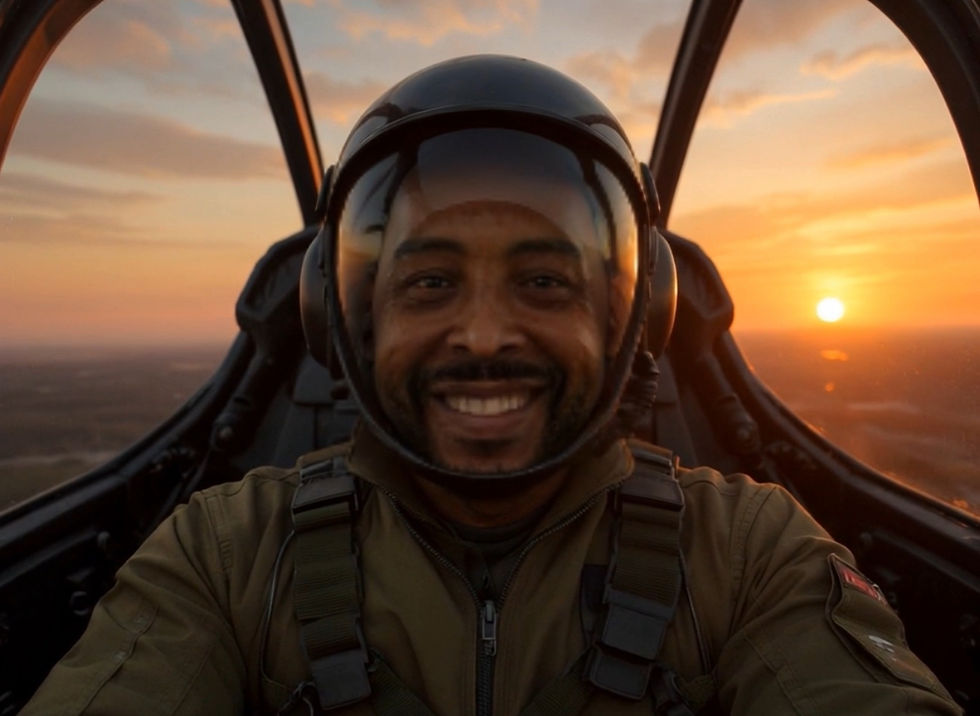Unleashing Creativity: How Artificial Intelligence Revolutionizes Art, Film, and Business
- Isaac Hill

- Jul 5
- 4 min read
Updated: Jul 18

In today's fast-moving world, artificial intelligence (AI) is transforming creativity across various fields like art, film, music, and business. This partnership between human imagination and machine intelligence is not only reshaping how we create, but it is also redefining the very nature of creativity. Let’s explore this compelling intersection and uncover the game-changing impact of AI.
The Intersection of AI and Creative Arts
The art world is witnessing some of the most exciting advances thanks to AI's capabilities. For example, AI programs can now generate artwork that captures the essence of different styles. A striking example is the "Edmond de Belamy" portrait by the Obvious art collective, which sold for an astounding $432,500 at auction. This piece sparked debates on originality and ownership in art, illustrating how machines can push artistic boundaries.
AI doesn't just replicate existing styles; it also analyzes vast data sets to uncover emerging trends. One study found that artists using AI tools increased their engagement by 30 percent. By leveraging these insights, artists can create work that resonates more strongly with their audiences and enhances their creative processes.

The combination of technology and artistry opens new pathways for expression. Artists are not merely using AI as a tool; they view it as a collaborator that enriches their imagination and helps them explore previously uncharted territories in their work.
Transforming Film through AI Innovations
In the film industry, artificial intelligence is redefining production and storytelling. Algorithms now assist in scriptwriting, casting decisions, and editing, analyzing audience preferences to suggest changes that could enhance viewer satisfaction. For instance, in a pilot program, one AI tool was able to predict audience reactions with an accuracy rate of 85 percent.
AI's role extends beyond the initial phases of filmmaking. During post-production, AI technologies streamline processes such as color grading and sound design. An example is the use of AI in creating trailers tailored to specific demographics, significantly increasing viewer interest and potential box office revenue. By studying past box office trends, AI can help filmmakers make smarter choices that influence their films' financial success.

Imagine enjoying a blockbuster movie, knowing that AI played a significant role in developing its storyline and editing. This blending of technology and artistic creativity is expanding narrative possibilities and captivating audiences in entirely new ways.
Music: The AI Composer
In the realm of music, AI is helping artists craft new sounds and styles. Algorithms are capable of analyzing millions of songs to identify patterns, enabling them to generate music that feels just as authentic as human compositions. OpenAI's Jukedeck and Google's Magenta project are creating tools that assist musicians in producing everything from simple background scores to complex musical pieces.
Beyond composition, AI is also enhancing listeners' experiences by curating personalized playlists based on individual tastes. One survey revealed that nearly 70 percent of users felt AI-generated music recommendations helped them discover new genres.
By allowing musicians to focus more on their artistry, while AI handles data-driven elements, the music industry is entering a new era full of creative potential and innovation.
AI in the Business World: Fostering Creativity and Innovation
In business, AI is transforming how companies approach creativity and innovation. Firms can analyze market trends, customer feedback, and competitor activities to refine their strategies, leading to a 20 percent increase in customer satisfaction for those leveraging AI insights.
AI tools are streamlining brainstorming sessions, highlighting market gaps, and suggesting innovative concepts that companies can pursue. This data-informed approach empowers businesses to meet customer needs more effectively and creatively.
Today's business landscape emphasizes seamless integration between human intuition and AI analytics, creating a culture of experimentation and rapid innovation.
Challenges and Considerations
While the collaboration of AI and creativity offers exciting prospects, challenges also arise. Issues surrounding authorship, ethics, and job displacement are critical considerations. As AI continues to produce creative works, it raises essential questions about the definitions of "art" and "music."
Navigating these complexities requires a collaborative mindset. By viewing AI as a partner rather than a threat, creators across disciplines can innovate and explore the boundaries of their fields more confidently.
The Future of Creativity with AI
Looking ahead, the bond between AI and creativity is set to evolve further. Industries are experiencing shifts in how creative roles are defined, with a growing focus on collaborative projects that involve both human creators and AI technologies.
As technology continues to advance, it will enhance artistic capabilities, enabling creators to conceptualize and produce work that once seemed unattainable. Overall, AI holds great promise for enriching the creative landscape and fostering a resurgence of ideas across multiple fields.
Embracing the New Creative Age
Artificial intelligence is clearly transforming the creative industries from art and film to music and business. As these sectors embrace innovative technologies, the potential for enhancing human creativity is boundless. The essential takeaway is that AI should serve as a collaborator in the creative journey—an entity that inspires, challenges, and ultimately enhances our imaginative capabilities.
In this era of rapid technological progress, promoting collaboration between human insight and machine intelligence opens up a future filled with exciting creative possibilities. The revolution is unfolding, and everyone has a role to play.






Comments